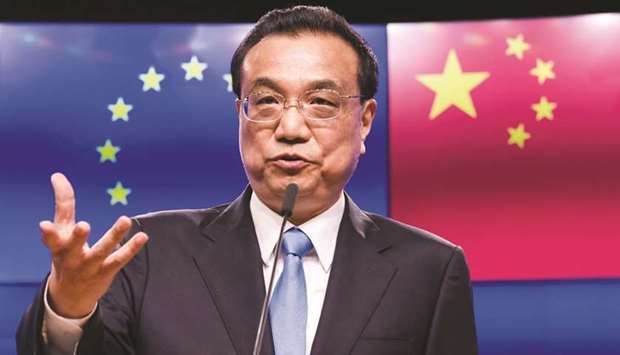Economists broke down China’s annual policy-document dump and concluded that Beijing is holding stimulus measures in reserve in case the global impact of the coronavirus pandemic worsens significantly.
The government reports released on the first day of the National People’s Congress on Friday were revolutionary in that they dispensed with an explicit target for gross domestic product growth, but otherwise stuck to the path of moderately increasing support to the economy.
That said, analysts see monetary policy easing being ratcheted up in the near term, a boost for infrastructure investment ahead, and strongly increasing credit growth this year.
Here are some economist takeaways from Premier Li Keqiang’s work report and the other policy documents:
Premier Li’s report may have left out the growth target but that doesn’t mean policy makers don’t have a rough idea where – pandemic permitting – they want the economy to land this year.
An expansion of around 3% would be required to meet the employment target of 9mn new jobs, according to Societe Generale SA economists Wei Yao and Michelle Lam.
“If the economic situation deteriorates more sharply than currently expected, we think that there is definitely scope for easing to be ratcheted up above what has been committed,” they wrote in a note.
The jobs target “cannot be achieved if real GDP growth is significantly below 3-4%.”
Premier Li was explicit that money and credit growth should be “significantly higher” than in 2019, and that implies further reserve-ratio cuts and other measures by the People’s Bank of China.
Whereas in 2019 the government wanted money and credit growth to remain largely in line with the nominal growth of the economy amid a long-standing effort to rein in indebtedness, that approach is gone this year.
China official says increasing debt level feasible and necessary that’s already happening, with both broad credit and aggregate financing expanding this year at a pace much faster than in 2019.
As banks are required to increase their loans to manufacturers and small and private firms, credit expansion will likely maintain a fast pace.
Nomura International Ltd economists including Lu Ting in Hong Kong wrote that the PBoC is likely to inject liquidity into the economy via further reserve-ratio cuts “by as much as 100 basis points over the next couple of weeks.” The pledge by Li for further interest rate cuts also means a rising chance of a benchmark deposit rate cut, they wrote.

Li: The People’s Bank of China would work to develop new monetary tools to u201cdirectly reachu201d the economy.
